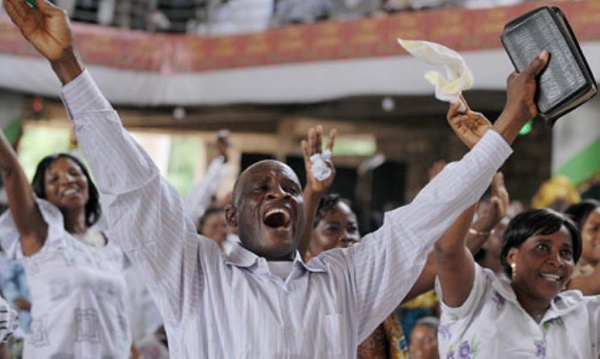 File photo of a Christian praising God in church
File photo of a Christian praising God in church
The article titled “A Call to the Christian Community in Ghana: Defend Our Secular Constitution Against the Introduction of Islamic Banking” presents a perspective that warrants a comprehensive and balanced response. While the concerns raised are rooted in a desire to uphold Ghana’s secular principles, it is essential to clarify misconceptions and highlight the potential benefits of introducing Islamic banking within our financial ecosystem.
1. Understanding Ghana’s Secular Framework
Ghana’s Constitution enshrines the nation as a secular state, ensuring freedom of religion and belief for all citizens. This secularism does not imply the exclusion of religious expressions from public life but rather promotes an environment where diverse religious practices coexist harmoniously. The Supreme Court of Ghana has affirmed that secularism in the Ghanaian context allows for the state’s recognition and accommodation of religious identities, provided such recognition does not infringe upon the rights of others or the state’s neutrality.
2. Islamic Banking: An Ethical Financial Model
Islamic banking, often referred to as non-interest or ethical banking, operates on principles that prohibit the charging of interest (riba) and emphasise risk-sharing, asset-backed financing, and ethical investments. These principles align with universal ethical standards and are not exclusive to Islamic teachings. In fact, similar ethical considerations are found in Christian and Jewish financial doctrines. Therefore, Islamic banking should be viewed not as a religious imposition but as an alternative financial model that offers ethical investment opportunities.
3. Global Precedence and Financial Inclusion
Globally, Islamic banking has been adopted in various secular countries, including the United Kingdom, South Africa, and Nigeria, demonstrating that its implementation is not inherently tied to religious governance. In these contexts, Islamic banking has contributed to financial inclusion by providing services to populations underserved by conventional banking systems. In Ghana, introducing Islamic banking could similarly enhance financial inclusion, offering alternative financing options to individuals and businesses seeking interest-free financial products.
4. Economic Development and Infrastructure Financing
Islamic banking introduces financial instruments such as sukuk (Islamic bonds), which can be instrumental in funding infrastructure and development projects without increasing national debt burdens. These instruments operate on profit-sharing and asset-backed principles, ensuring that financing is directly linked to tangible economic activities. Countries like Nigeria have successfully utilised sukuk to finance infrastructure, and Ghana could similarly benefit from such innovative financing mechanisms.
5. Regulatory Framework and Oversight
The establishment of Islamic banking in Ghana would necessitate a robust regulatory framework to ensure compliance with national financial laws and standards. The Bank of Ghana, in collaboration with other regulatory bodies, would oversee the licensing and operation of Islamic financial institutions, ensuring transparency, accountability, and adherence to ethical practices. This regulatory oversight would safeguard against any potential misuse or deviation from the intended ethical financial principles.
6. Promoting Interfaith Harmony and Mutual Understanding
Introducing Islamic banking should not be perceived as favouring one religious group over another but rather as embracing financial diversity that caters to the varied needs of Ghana’s populace. Engaging in open dialogues and educational initiatives can foster mutual understanding among different religious communities, dispelling misconceptions and highlighting the shared values underpinning ethical financial practices.
Conclusion
The integration of Islamic banking into Ghana’s financial system aligns with the nation’s commitment to religious freedom, economic development, and financial inclusion. By embracing diverse financial models, Ghana can enhance its economic resilience and provide its citizens with a broader range of ethical financial services. It is imperative to approach this development with an open mind, grounded in factual understanding and a shared vision for national progress.


